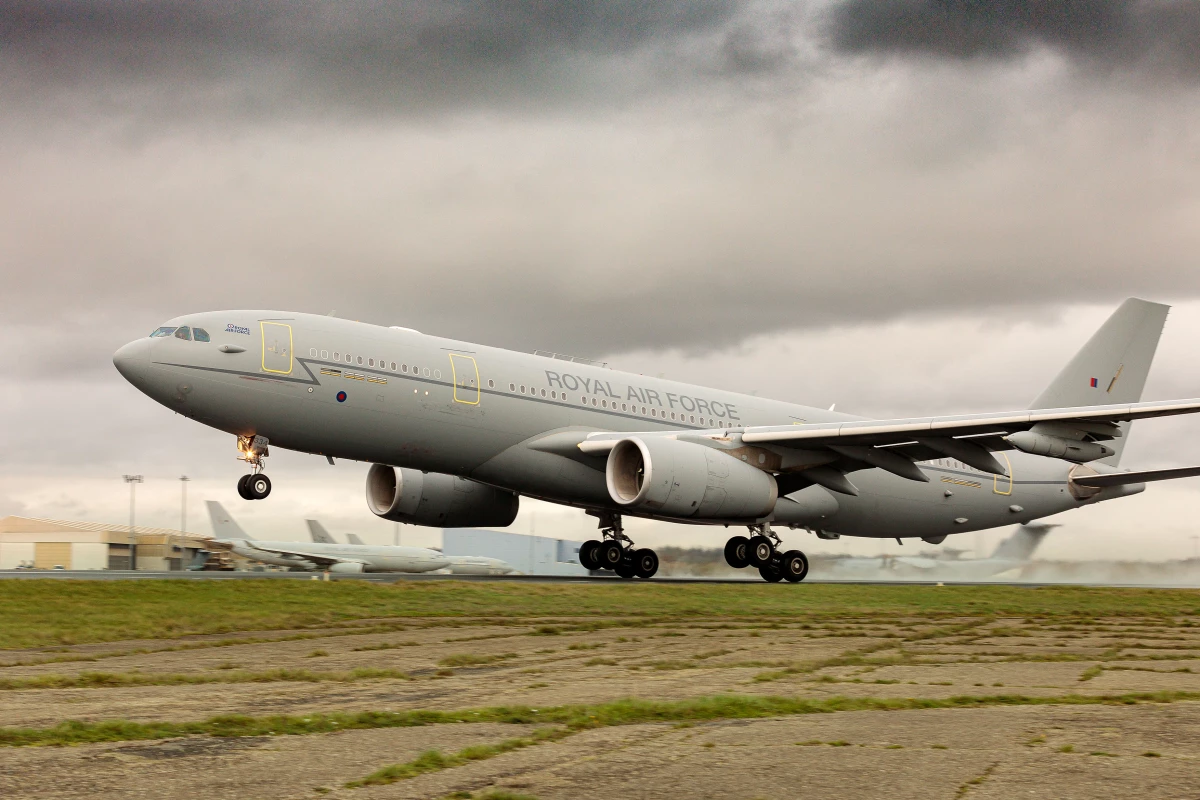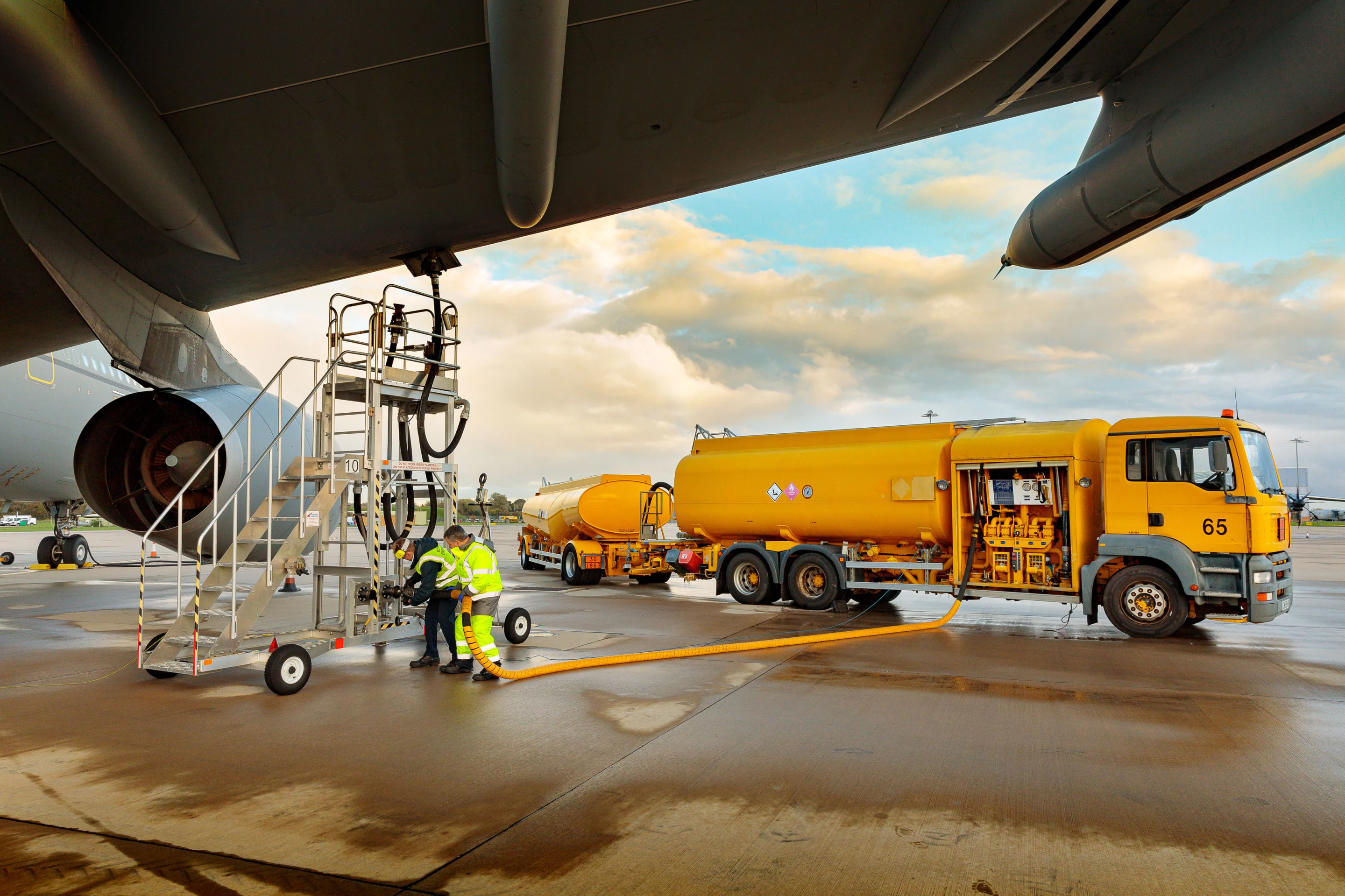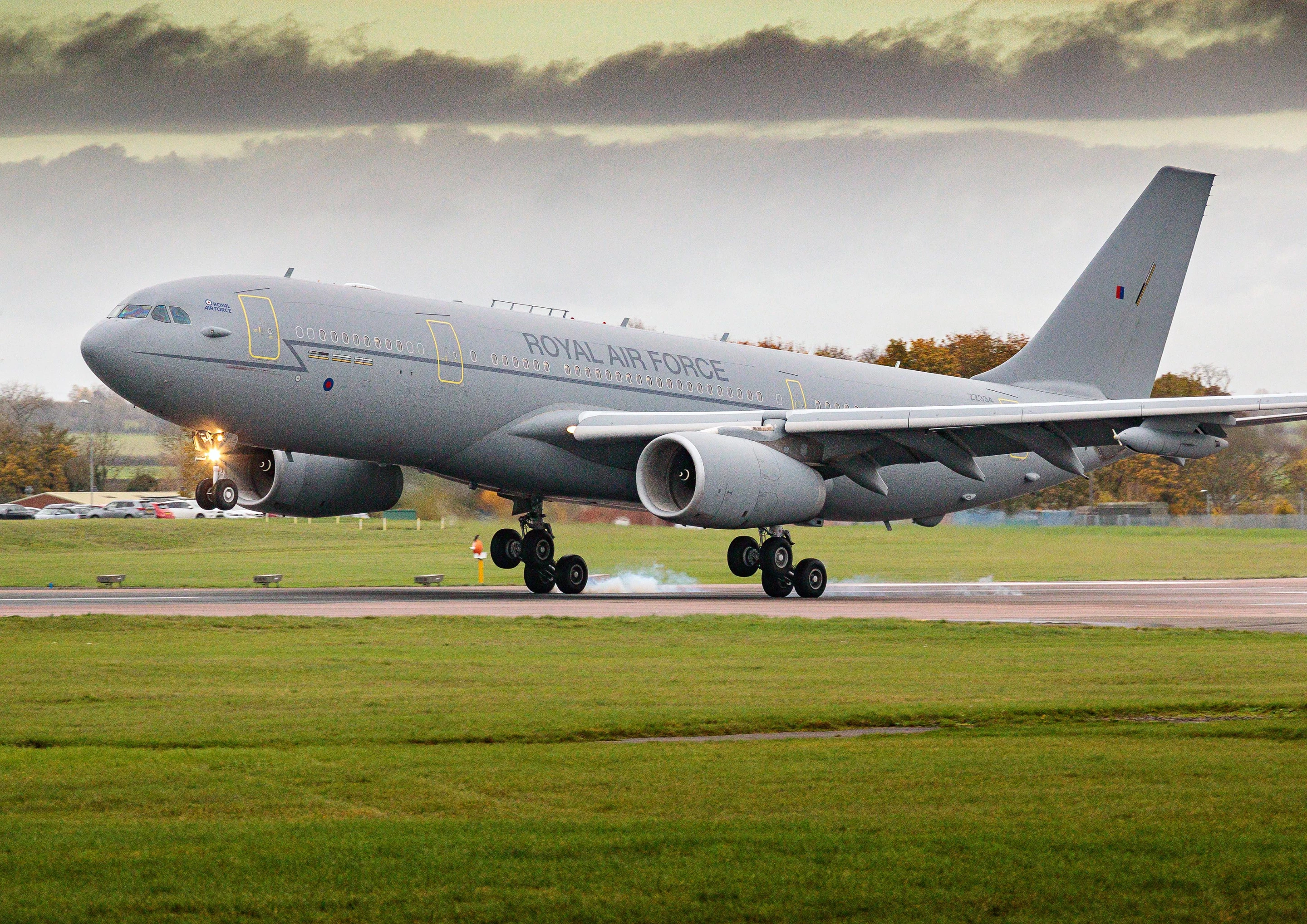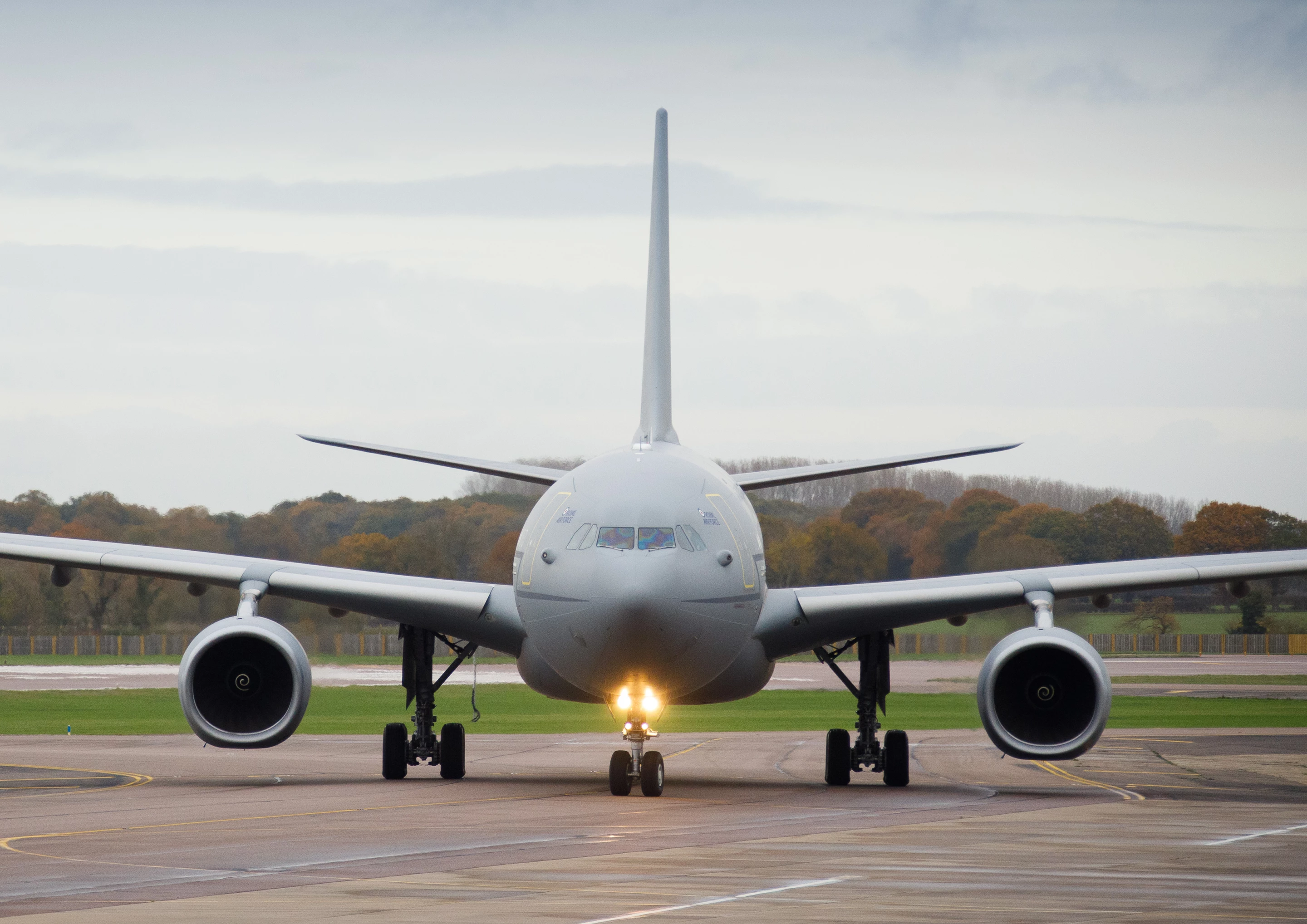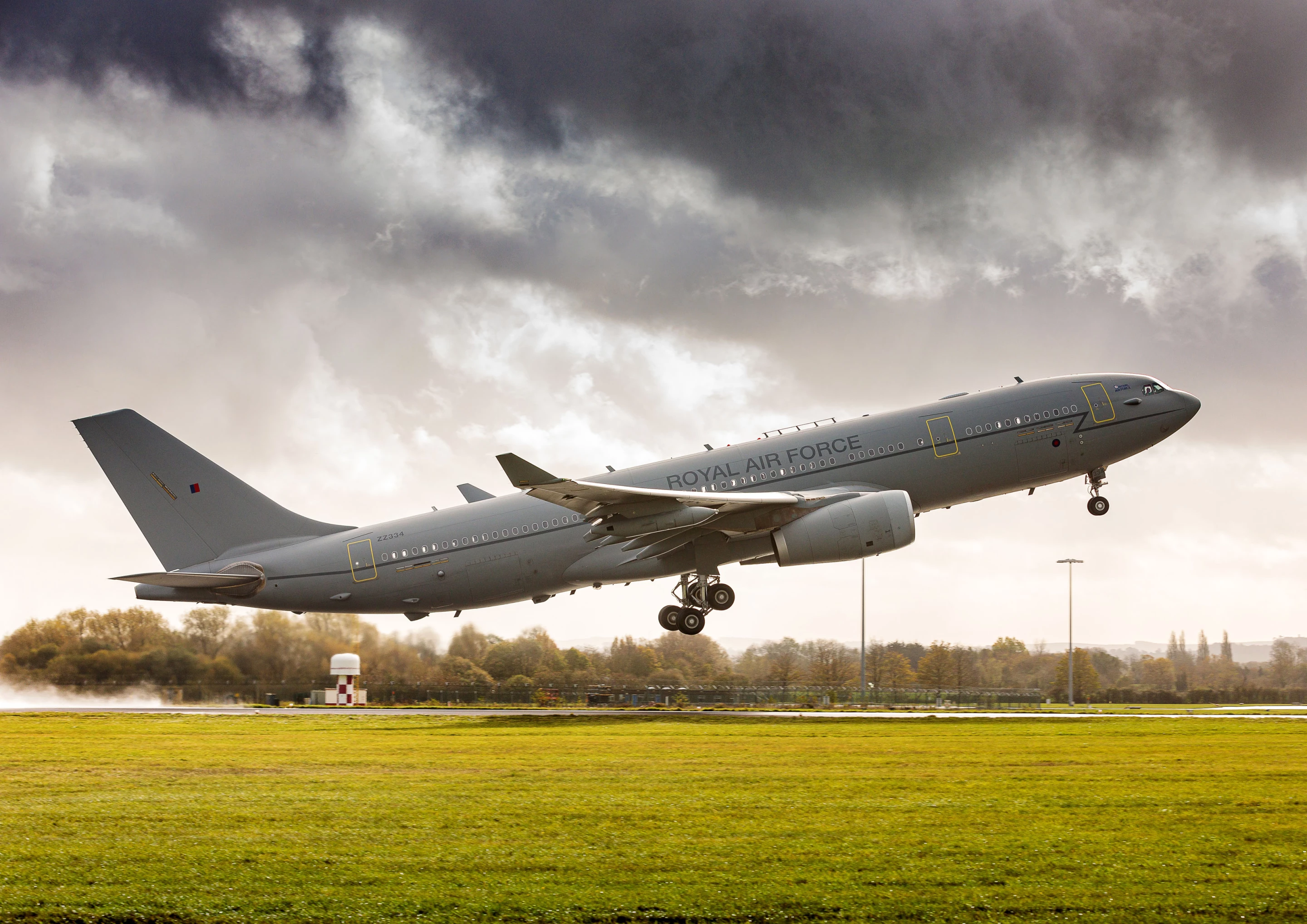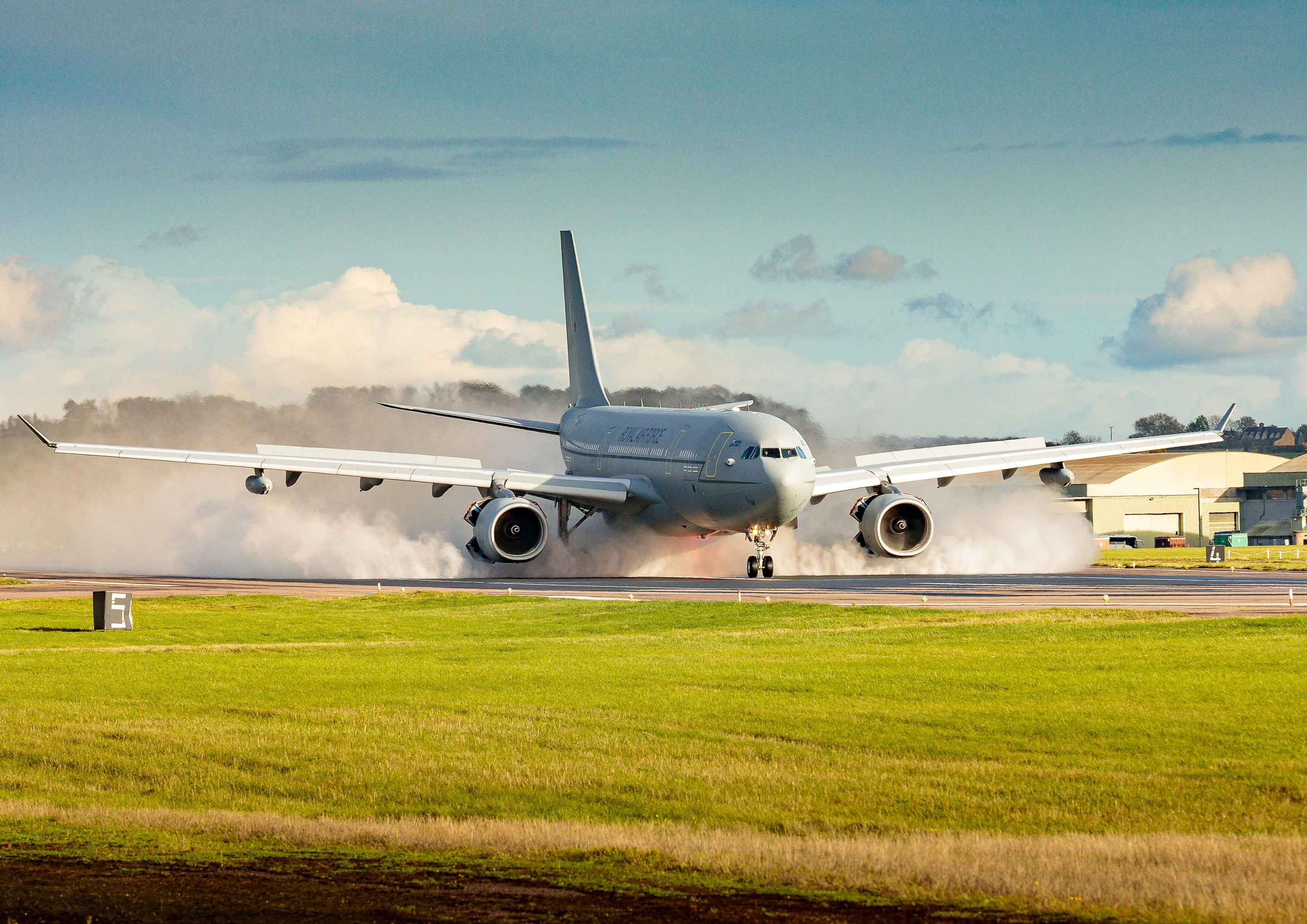A Royal Air Force (RAF) Voyager air-to-air refueling tanker made history on November 16 in the sky over RAF Brize Norton in Oxfordshire, UK, becoming the world's first in-service military aircraft to complete a flight using 100% Sustainable Aviation Fuel (SAF) for both engines.
With test pilot and Captain of the flight Jesus Ruiz at the controls of the converted Airbus A330 commercial jetliner, the 90-minute test flight carried an RAF, Rolls-Royce and Airbus flight test crew and replicated an air-to-air refueling sortie. The flight was conducted as a partnership by the RAF, the Ministry of Defence’s Defence Equipment and Support agency, Airbus, British aircraft leasing company AirTanker, and Rolls-Royce, with the SAF being supplied by Air BP, which is a division of British BP.
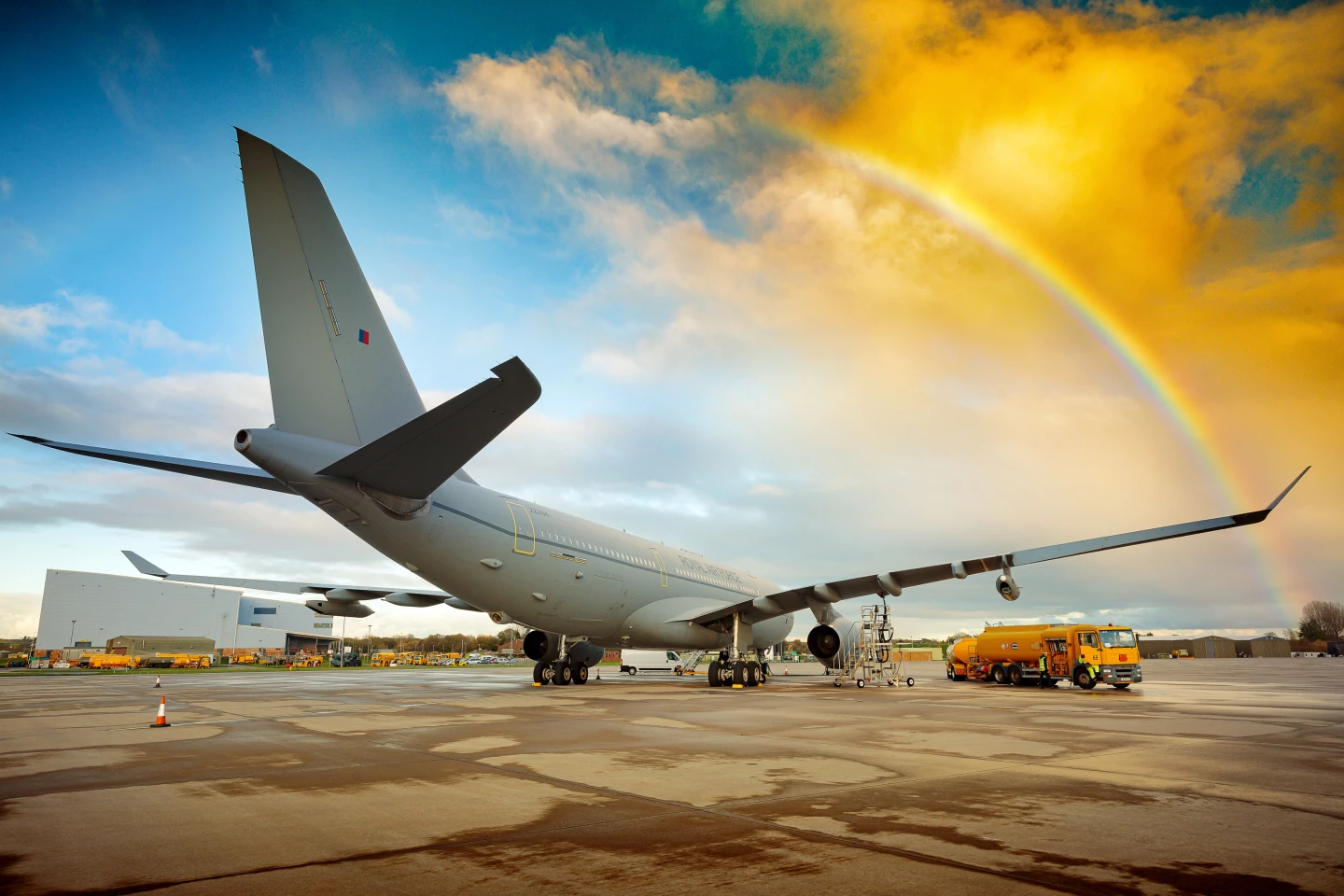
The recent test comes after a C42 microlight aircraft was flown by the RAF on November 2, 2021 using a synthetic UL91 fuel made by British energy company Zero Petroleum from water and carbon dioxide. The fuel used in the flight test is known technically as Ester Fatty Acid Synthetic Paraffinic Kerosene (HEFA SPK).
The RAF is interested in such fuels that can be made from waste materials or basic chemicals because they are not only more environmentally friendly, they also hold the potential for forward bases to one day be able to manufacture their own fuel rather than depending on expensive and vulnerable supply lines.
"From the crew perspective, the SAF operation was 'transparent,' meaning that no differences were observed operationally," said Ruiz. "The test plan was exhaustive and robust and has allowed us to compare SAF with JET1 [aviation fuel] culminating in a flight without a single drop of fossil fuel. Teamwork was a key contributor, harmonizing experience from Airbus, Rolls-Royce, and the RAF. We feel very proud to be a small part of this huge step for sustainable aviation."
Source: Airbus
